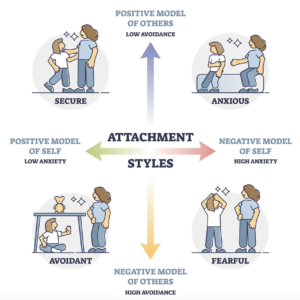
Attachment theory has gotten big in recent years, in large part due to young people pushing it on social media. It’s especially popular with young people who struggle to understand the motives of others. Especially others they’re dating (or trying to date).
Uh-oh. Dating and pop psychology rarely mix well. They don’t mix well in this case, either.
Laura Pitcher recently wrote in Nylon about the ‘Tiktokification‘ of attachment theory. It’s worth a read for a number of reasons. But one reason stands out to me. And it’s a point I’ve been hitting ever since my grad school days, culminating in my first book – Classify and Label.
We’ll take a look at that point.
The Dangers of Labels
Without further ado, here’s the point. When we remove labels from their narrow, technical settings and unleash them on every day life, they take on a life of their own. This often creates a number of problems.
The process takes a few forms. When we think about labels – attachment styles, in this case – we change how we think about ourselves and our lives. At times, we use labels to make positive change, recreating our attitudes and approach in ways that benefit us. And that’s a good thing! But at other times, we stew on the labels and change for the negative, erroneously believing that negative attachment styles are a permanent feature of our very selves.
But it’s not just a process of conscious thought applied to ourselves. Labels also work their way into how we behave toward others, both explicitly and implicitly. While I usually write about labels involving sexuality, this also applies to the labels of attachment theory.
In the case of ‘Tiktokification,’ young people fob labels like ‘avoidant’ or ‘anxious’ onto others. Often they do so in order to explain why others fail to behave how they want them to behave.
This carries risks. Minimally, they probably misunderstand the people they’re diagnosing. But maximally, this all shades into deeper kinds of marginalization of others – the targets of the labels. Subtle changes in how we treat others can change everything from the relationships people form to the treatment people receive from doctors and professionals.
Take Attachment Theory Less Seriously
With the labels set out by attachment theory, all these things are happening. People self-diagnose or they diagnose others with negative attachment styles. In doing so, they take highly contingent features of people and apply them as well worked out, invariant features.
That’s a no-no. We should take these labels far less seriously than that.